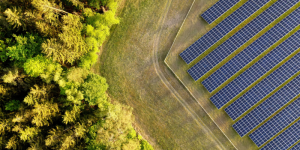Energy transition: IRENA highlights the need for a new european taxonomy
Between challenges and Innovations, revisiting energy classification can guide the energy transition.

In a world where energy innovation is advancing at an unprecedented pace, our energy infrastructures and policies are in a constant state of evolution.
The growing enthusiasm for renewable energy sources is steering countries towards a gradual shift away from fossil fuels, marking a promising chapter for a sustainable energy future.
However, according to IRENA, this transition is not without challenges, especially when it comes to monitoring and classifying the multiple energy sources coming into play.
Energy Transition: Obsolete Classifications Threaten Clean Energy
A significant obstacle lies in the fact that current global regulations outlined in the International Recommendations for Energy Statistics (IRES) do not clearly distinguish between renewable and non-renewable sources.
This gap in the classification system fails to acknowledge the variety and complexity of renewable energy technologies and products gaining ground in the global energy landscape.
The Standard International Energy Product Classification (SIEC), which has not seen significant updates for nearly 15 years, urgently requires a revision to incorporate a more detailed and inclusive taxonomy of renewable energies.
Without this evolution, IRENA warns that we risk navigating the energy transition with outdated programs, hindering a more sustainable future.
Accurate classification of energy sources is not only crucial for monitoring and measurement but also fundamental to understanding the ongoing energy transition.
In this context, the IRES proposes a common framework for energy categories, thus facilitating international collaboration through a shared language. This aspect is particularly relevant in assessing the sustainability of national energy systems and analyzing the impact of different sources on the climate.
Renewable Energy and Climate Agreements: Challenges and Opportunities in Data Collection
Renewable energy plays a key role in adapting to and mitigating climate change, a fact made even more evident by the Paris Agreement, which introduced an international framework for accounting for carbon emissions related to energy.
Thanks to this agreement, many countries have been able to harmonize their national energy information with international standards, contributing to greater awareness of global carbon emissions.
Despite these advances, there are still critical issues related to energy data collection. Many countries have ceased monitoring energy sources due to bureaucratic constraints, lack of funding or political interest, or simply the absence of key regulations.
This situation highlights the need for a more definitive and comprehensive energy taxonomy that can also encompass off-grid technologies and various forms of bioenergy.
Related Focus






